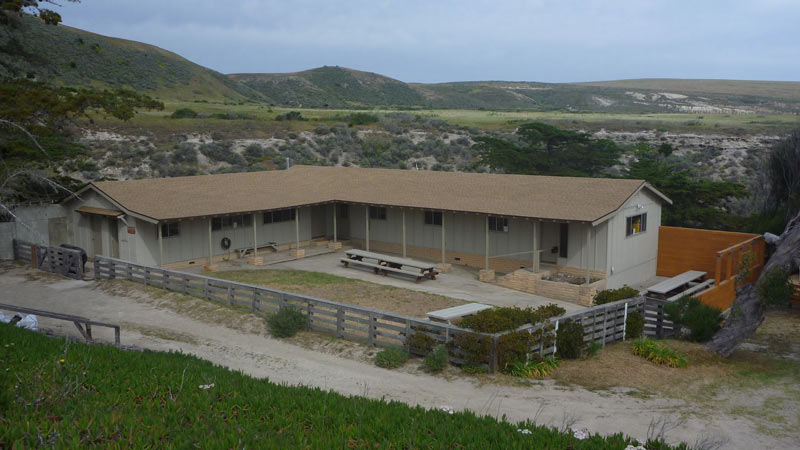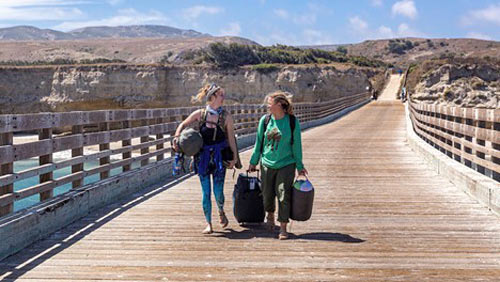The SRI Research Station has sleeping accommodations for 36 people. The bunkhouse consists of eight bedrooms and three bathrooms and sleeps 22 people. There are two canvas-walled, wood-framed tent cabins located behind the main bunkhouse and which, combined, sleeps 14 people. Guests need to bring their own sleeping bag, pillow, toiletries, food, etc.

The kitchen is equipped with standard large and small appliances, cookware, dishes, silverware, cleaning supplies, etc. All cooking is done at the facility; individual cooking stoves are prohibited, due to a possible fire hazard. We have two coffee pots with reusable filters, but please bring your own coffee! We recommend bringing an extra day’s supply of food because transportation back to the mainland could be delayed due to bad weather. Hot and cold running water, showers (currently unavailable for trips less than 5 days), toilets, and limited laundry facilities are furnished. Please maintain a sustainability mindset and conserve power and water. A propane grill is available for use. Do not leave grill unattended due to the high fire hazard. No open fires or fire pits are permitted.
Storage Sheds: Storage space is available for research, lab, or personal items for an additional charge.
We make no guarantees that any of the services provided, including but not limited to, housing, water, electricity, and internet, will be available or will be fully functional.
Recommended & Prohibited Items
To Bring List (PDF, 250KB)
Allowed Items
Sunscreen, sleeping bag, pillow, bath towel and toiletries, hat, camera, rain gear, windbreaker, layers of clothing, swimwear, medications, feminine hygiene products, allergy kits, shoes (hiking boats or tennis shoes), reusable water bottle(s) hydration pack, flashlight or headlamp, signed liability waiver, field notebook, field equipment, laptop computer/tablet, misc. field gear or overnight necessities.

Prohibited Items
- Plastic grocery bags (single-use carryout bags) are prohibited on the island because if accidentally released they can pose health and environmental risks to threatened and endangered marine species.
- Firearms or other weapons and fireworks.
- Non-Native Species. Non-native, invasive species threaten endangered animals and plants on the Channel Islands and are costly to control. The following regulations and guidelines can help prevent the introduction and spread of invasive species before they become a problem. To prevent the introduction of invasive species the following items shall not be transported or delivered to the island: pets or any animal, service animals (except by permit from superintendent), live or potted plants, soil, cut flowers, firewood or any untreated, unfinished wood (including hiking sticks), corrugated boxes, tools or equipment with attached soil, motorized vehicles, and bicycles. Less restrictive measures would have the potential for introduction of non-native species that could adversely affect many species and/or endanger the islands ecosystems.
Please inspect your personal gear (e.g. packs, shoes) and clean off dirt, seeds and insects before departing from the mainland.
